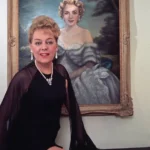TGG in its original form is heavily centered around white people. So in the reimagining of Self Made Boys the reader gets a perspective that was glazed over in the original. From the constant passive aggressive comments Nick gets in SMB to Daisy trying to pass. This book gives us a deeper look into the realities of people of color during this time.
Most of the commentary from TGG about race is from Tom and his unsavory opinions about people of color. “Next they’ll throw everything overboard and have intermarriage between black and white.” (Fitzgerald) This is Tom describing how the institution of marriage will be in his eyes disrespected (ironic) with the expansion of civil rights eventually allowing interracial marriage. However, this is the extent that race is discussed in the novel from white and racist points of view.
In SMB the narrator Nick is a person of color and so are many supporting characters. This opens up a new outlook into the times of the 1920’s in the United States. Daisy is passing as white and dating Tom who’s parents and himself would not be approving of if they knew that she was Latina. It shows the politics of the time and the social pressure for people of color to be more white to gain status. This is echoed in Nick’s work environment where he is given a white last name, Carraway, to appear white and therefore more professional to their cliental.
SMB opens the conversation for racial politics from the original novel and shows a better understanding of the original from the reimagining. With this novels new content we can see how Tom’s thoughts of race went beyond drunken dinner conversations and further into real life. When people of color were able to gain high status jobs they had a pressure to be someone they were not to keep their jobs. Women would also attempt to mask their race in order to marry higher status men at the time.
Through these new perspectives better context is brought to the United States and the further social and political issues of the 1920’s.





Comments by Piper Rolston